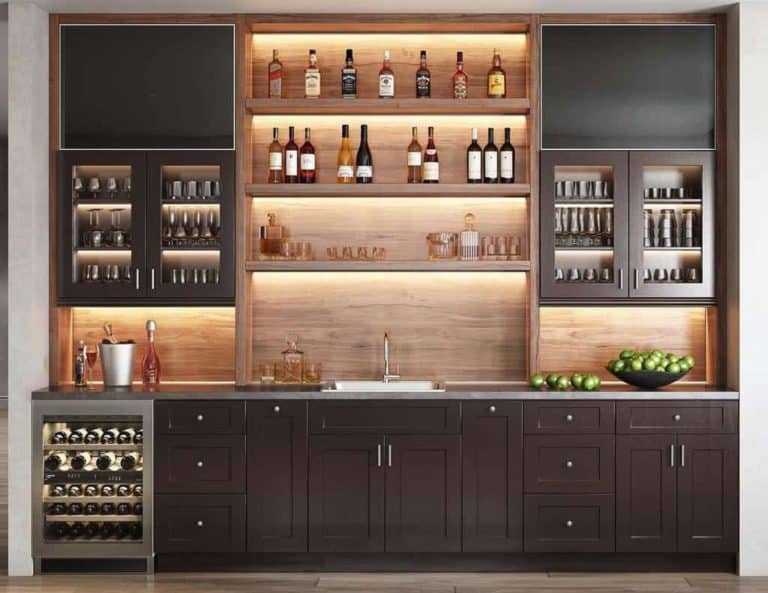Discover the truth behind the unpleasant taste of hotel water.
If you’re short on time, here’s a quick answer to your question: Hotel water may taste bad due to various factors such as poor water source, inadequate filtration, plumbing issues, or the presence of chemicals.
In this article, we will delve into the reasons behind the unpalatable taste of hotel water and explore possible solutions. Whether you’re a frequent traveler or just curious about the topic, this comprehensive guide will provide you with valuable insights.
The Role of Water Source
When it comes to the taste of hotel water, the source of the water plays a crucial role. Depending on where the hotel is located, they may obtain their water from a municipal water supply or from groundwater sources. Let’s explore how these different water sources can impact the taste of the water.
Contaminated Municipal Water Supply
In some cases, hotels obtain their water from a municipal water supply, which is treated and regulated by the local government. However, despite these regulations, there can still be instances where the water supply becomes contaminated. This can happen due to a variety of reasons, such as pipe corrosion, sewage leaks, or even natural disasters. Contaminated water can have a noticeable impact on the taste, resulting in a metallic or chlorine-like flavor. If you notice a strange taste in the hotel water, it could be due to issues with the municipal water supply.
Groundwater Contamination
Hotels located in rural areas or regions with limited access to a municipal water supply may rely on groundwater sources. While groundwater can be a reliable source of water, it can also be susceptible to contamination. For instance, agricultural runoff, industrial waste, or improper waste disposal can seep into the groundwater and affect its taste. Additionally, groundwater can naturally contain minerals and salts, which can give the water a distinct taste. If a hotel obtains its water from groundwater sources, it is important to regularly test and treat the water to ensure its quality and taste.
Presence of Minerals
Minerals naturally present in water can also contribute to its taste. Common minerals found in water include calcium, magnesium, and potassium. While these minerals are not harmful to consume, they can give the water a slightly “hard” taste or make it feel less refreshing. Some people may prefer this taste, while others may find it unpleasant. The presence of minerals in hotel water can vary depending on the region and the specific source of the water.
Understanding the role of the water source can help explain why hotel water may taste bad. It is important for hotels to prioritize water quality and take necessary measures to ensure their guests have access to clean and palatable water during their stay.
Inadequate Filtration Systems
When it comes to the taste of hotel water, one of the main culprits is often the inadequate filtration systems used. These systems are responsible for removing impurities and contaminants from the water, ensuring that it is safe and clean to drink. However, if the filtration system is not up to par, it can result in unpleasant-tasting water.
Lack of Advanced Filtration Techniques
Many hotels use basic filtration techniques that may not be sufficient in removing certain compounds that can affect the taste of water. These techniques may be unable to filter out minerals, chemicals, or bacteria that can lead to a strange or unpleasant taste. As a result, guests may find themselves reaching for bottled water instead of relying on the tap.
To tackle this issue, some hotels are turning to more advanced filtration techniques. For example, reverse osmosis systems are becoming increasingly popular as they can effectively remove a wide range of impurities, resulting in better-tasting water. These systems use a semipermeable membrane to remove contaminants, ensuring that the water is clean and refreshing.
Inefficient Maintenance of Filters
Another factor that can contribute to the poor taste of hotel water is the inefficient maintenance of filtration systems. Over time, the filters in these systems can become clogged with impurities, reducing their effectiveness in removing contaminants. If the filters are not regularly cleaned or replaced, the water may develop an unpleasant taste.
Hotels should prioritize regular maintenance of their filtration systems to ensure that the water remains fresh and enjoyable. This includes cleaning or replacing filters as recommended by the manufacturer, as well as monitoring the quality of the water through regular testing.
Remember: A well-maintained and advanced filtration system is crucial in providing guests with clean and great-tasting water during their stay.
Plumbing Issues
Old or Corroded Pipes
One of the main reasons why hotel water may taste bad is due to old or corroded pipes. Over time, pipes can deteriorate and develop rust or mineral buildup, which can affect the taste and quality of the water. When water flows through these pipes, it can pick up unpleasant flavors and odors. Additionally, the presence of rust or other contaminants in the pipes can lead to discoloration of the water, making it appear unappealing.
To address this issue, hotels should regularly inspect and replace old or corroded pipes. By investing in modern plumbing systems, hotels can ensure that guests receive clean and great-tasting water during their stay. Regular maintenance and pipe replacement can significantly improve the overall water quality and enhance the guest experience.
Cross-Contamination
Another common plumbing issue that can contribute to bad-tasting water in hotels is cross-contamination. Cross-contamination occurs when there is a mixing of clean water with contaminated water due to faulty plumbing connections or improper installation of pipes. This can lead to the introduction of bacteria, chemicals, or other contaminants into the water supply.
To prevent cross-contamination, hotels should ensure that their plumbing systems are properly installed and maintained. Regular inspections and testing can help identify any potential issues and allow for timely repairs. By following proper plumbing practices and adhering to health and safety regulations, hotels can minimize the risk of cross-contamination and ensure that guests are provided with safe and great-tasting water.
For more information on plumbing issues and their impact on water quality, you can visit websites such as EPA or CDC.
Chemical Treatments
When it comes to the taste of hotel water, one important factor to consider is the chemical treatments that are used to ensure the water is safe for consumption. While these treatments are necessary to kill potentially harmful bacteria and viruses, they can also affect the taste of the water.
Chlorine and Chloramines
One common chemical treatment used in hotel water systems is chlorine. Chlorine is added to the water as a disinfectant, killing bacteria and preventing the spread of waterborne diseases. However, chlorine can leave a distinct taste and odor in the water, which many people find unpleasant.
In addition to chlorine, some hotels may also use chloramines as a disinfectant. Chloramines are formed when chlorine reacts with ammonia. While chloramines are effective at killing bacteria and viruses, they can also give the water a slightly different taste compared to chlorine alone.
If you find the taste of chlorine or chloramines in hotel water to be off-putting, there are a few things you can do. One option is to let the water sit exposed to air for a short period, as this can help dissipate the chlorine taste. Alternatively, you can use a water filter or bring your own bottled water for drinking.
Fluoride
Another chemical treatment commonly found in hotel water is fluoride. Fluoride is added to water supplies in many areas as a means of preventing tooth decay. While fluoride has proven benefits for dental health, some people are sensitive to its taste.
If you find that the taste of fluoride in hotel water is not to your liking, you can consider using a water filter that is specifically designed to remove fluoride. These filters use activated alumina or other materials to reduce the concentration of fluoride in the water.
Chemical Cleaning Agents
In addition to the chemicals used for disinfection and fluoride treatment, hotels also use chemical cleaning agents to ensure the water is free from impurities and contaminants. These cleaning agents can sometimes leave a residual taste in the water.
It’s important to note that the taste of hotel water can vary depending on the specific chemical treatments used by each hotel. Some hotels may have more advanced filtration systems or use different chemicals, resulting in water that tastes better than others.
If you are concerned about the taste of hotel water, consider checking the hotel’s website or contacting their front desk to inquire about their water treatment methods. Additionally, bringing your own water filter or bottled water can be a convenient solution to ensure you have access to great-tasting water during your stay.
Solutions for Improving Hotel Water Quality
Water Filtration Systems
One effective solution for improving hotel water quality is the installation of water filtration systems. These systems are designed to remove impurities, such as chlorine, heavy metals, and bacteria, from the water supply. By filtering out these contaminants, the water becomes cleaner and tastes better. Additionally, water filtration systems can also help to eliminate odors, providing a more pleasant drinking experience for hotel guests.
There are various types of water filtration systems available, including activated carbon filters, reverse osmosis systems, and UV filters. Each type has its own advantages and drawbacks, so it is important for hotels to choose the system that best suits their needs and budget.
Regular Maintenance and Testing
Another crucial step in improving hotel water quality is regular maintenance and testing. Hotels should establish a comprehensive maintenance schedule to ensure that water systems are regularly inspected, cleaned, and serviced. This includes checking for leaks, replacing worn-out parts, and disinfecting water tanks and pipes.
Regular testing of the water quality is also essential. Hotels should conduct regular water quality tests to check for the presence of harmful contaminants. This can be done in-house using water testing kits or by hiring a certified laboratory to perform the tests. By regularly monitoring the water quality, hotels can identify any issues early on and take appropriate measures to address them.
Bottled Water Options
For hotels that are unable to improve their water quality through filtration systems or maintenance, offering bottled water options can be a viable solution. Providing guests with bottled water ensures that they have access to clean and good-tasting water throughout their stay.
Hotels can choose to offer complimentary bottled water in guest rooms or have water stations in common areas where guests can refill their bottles. It is important for hotels to choose reputable bottled water brands that meet quality and safety standards. Additionally, hotels can also consider partnering with local water delivery services to provide guests with convenient access to high-quality bottled water.
Improving hotel water quality is essential for guest satisfaction and overall reputation. By implementing water filtration systems, conducting regular maintenance and testing, and offering bottled water options, hotels can ensure that their guests enjoy clean and great-tasting water during their stay.
Conclusion
The taste of hotel water can be influenced by multiple factors, ranging from the source of the water to the treatment methods used. Contaminated municipal water supplies, groundwater contamination, and the presence of minerals are common culprits.
Inadequate filtration systems and inefficient maintenance can also contribute to the unpleasant taste. Plumbing issues, such as old or corroded pipes and cross-contamination, further impact water quality.
Chemical treatments, including chlorine, chloramines, fluoride, and cleaning agents, can leave an undesirable taste in the water. However, there are solutions available to improve hotel water quality, including the use of water filtration systems, regular maintenance, and the option of bottled water.
By understanding the underlying causes and exploring effective solutions, you can ensure a more enjoyable and refreshing experience when consuming water during your hotel stay.






